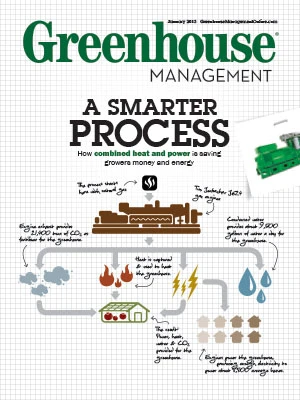 Benedetto and Meyer Benedetto and Meyer |
It’s proven that employee engagement is directly linked to the profitability and sustainability of a business. So why is it that — according to the Gallup Organization — only 11 percent of all employees are engaged in their work? Engagement means being committed to something or someone in an organization. But that’s not always enough. Our research revealed companies where employees possess strong emotional attachments that have led to remarkable results and exceptional performance. Employees in these companies are more than engaged; they’re entangled. The drive for positive employee-company dedication and commitment run constantly at the deepest levels, resulting in a sustainable, competitive advantage for each company. It sounds negative, but being “entangled” is a positive force that draws people together. Entangled employees want to be great, and that mentality is what affects profitability and sustainability of their respective businesses. They interlace all aspects of their lives into a finely-honed discipline directed toward achieving one’s personal best performance, which leads to seeing themselves as part of a larger organization, where team members rely on others rather than on individual achievement alone. They focus on making collaborative decisions that yield the best possible results for the organization. They see the world from a broader perspective, approaching their work with a greater understanding of how performance on each job contributes to individual, team and organizational success, and they can be found at any level of a business.
Having leaders who do extraordinary things. The transformative leaders who shape a performance-excellence culture is evident in entangled cultures and operates at all levels. Everyone has leadership responsibilities because of the ability to influence the actions of others. Building an ethical organization. Entangled organizations have explicit core values that extend to all stakeholders. Daily actions reflect a pronouncement of what each organization holds dear. Trust between suppliers and customers grows each time an obligation is met and a promise is kept. Focusing all the human capital. Entangled employees create world-class organizations through shared visions requiring cross-functional teamwork and elevated thinking about potential solutions. Linking individual actions plans with strategic goals is critical for achieving success. Using processes to guide performance. The first step for understanding any organization is defining the key processes that deliver value to customers. Entangled organizations manage and improve these processes constantly. Process improvement stems from the alignment of human capital within each process. Increasing individual self-efficacy. Leaders within entangled cultures focus first on the individual, building on a set of core values that respect the dignity of each person. They must support the will to excel by building trust, and develop self-confidence through personal example and constant encouragement. Giving freedom and responsibility within a culture of discipline. Freedom to operate begins with clear definitions of each employee’s role and performance expectations, which helps define one’s area of responsibility. Discipline relates to appropriate conduct in any situation. Hardwiring discretionary thinking and actions. Entangled companies identify errors, conduct post-mortems after every event, and foster open discussions that lead to continuous improvements, which reinforce and encourage discretionary thinking. Guiding the transformation process to remarkable results. Creating an entangled company requires progressive and continual improvement guided by Kotter’s 8-step model for major change. Building self-efficacy and discretionary thinking requires pervasive trust rooted in relationships between and among stakeholders.
Dr. Ray Benedetto, D.M., is a retired USAF Colonel. He founded a consulting firm that helps leaders build high-performing, character-based cultures. Molly Meyer is a marketing professional and independent writer. They’re the co-authors of “It’s My Company Too! How Entangled Companies Move Beyond Employee Engagement For Remarkable Results.” Have a question? For more, visit www.itsmycompanytoo.com. |

Do you know someone that has made a positive impact in the horticulture industry? Nominate them for a Horticultural Industries Leadership Award (HILA)!
| SUBMIT NOMINATION |

Explore the January 2013 Issue
Check out more from this issue and find your next story to read.
Latest from Greenhouse Management
- Meet the Next Gen: Gabriella Blair, Star Roses and Plants
- Leading Women of Horticulture: Katie Dubow, Garden Media Group, and Aubry Field, Lizzy Blossom
- Showing up at your horticulture business as your whole self
- Leading women of Greenhouse Management
- USDA fires experts on invasive pests, including Asian citrus psyllid, chilli thrips
- Farwest Show calls for 2025 New Varieties Showcase entries
- Leading Women of Horticulture: Arden Pontasch, North Creek Nurseries
- Leading Women of Horticulture: Emily Showalter, Willoway Nurseries







